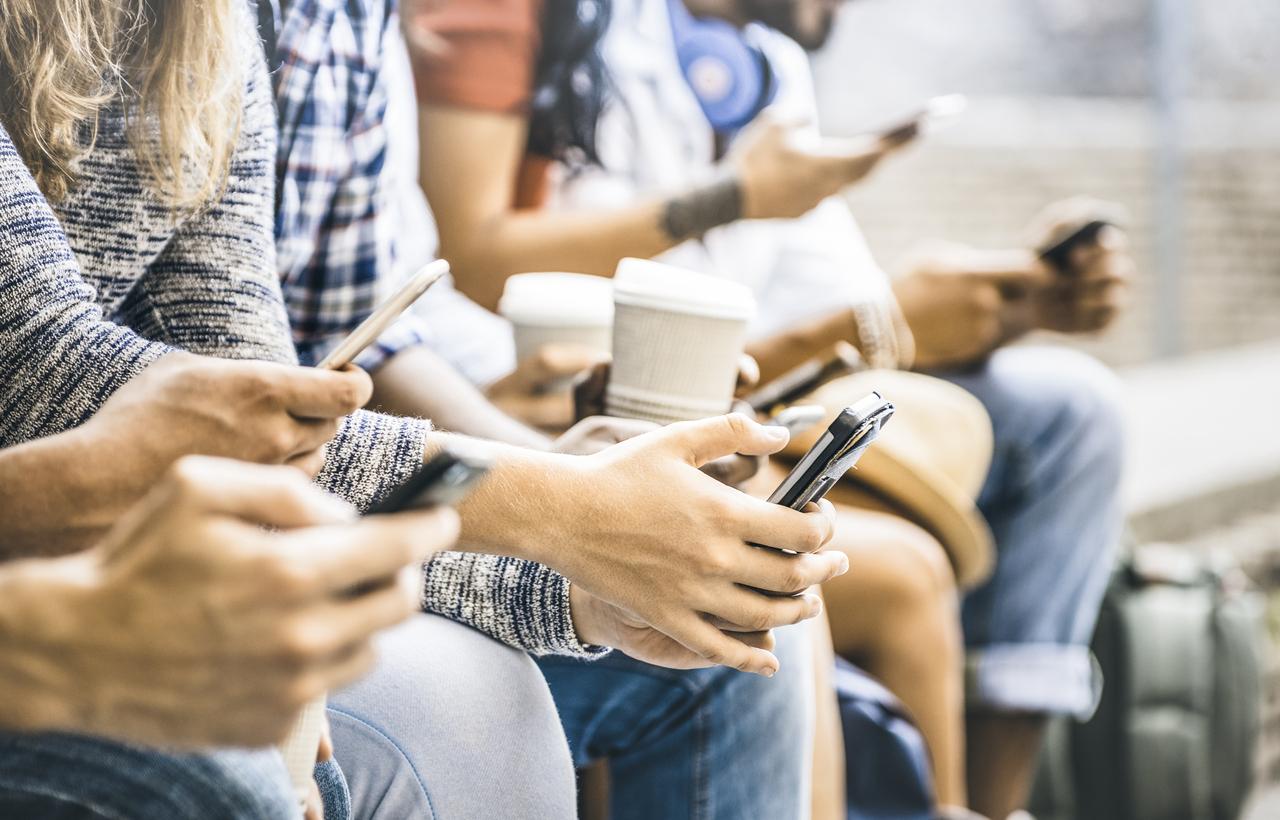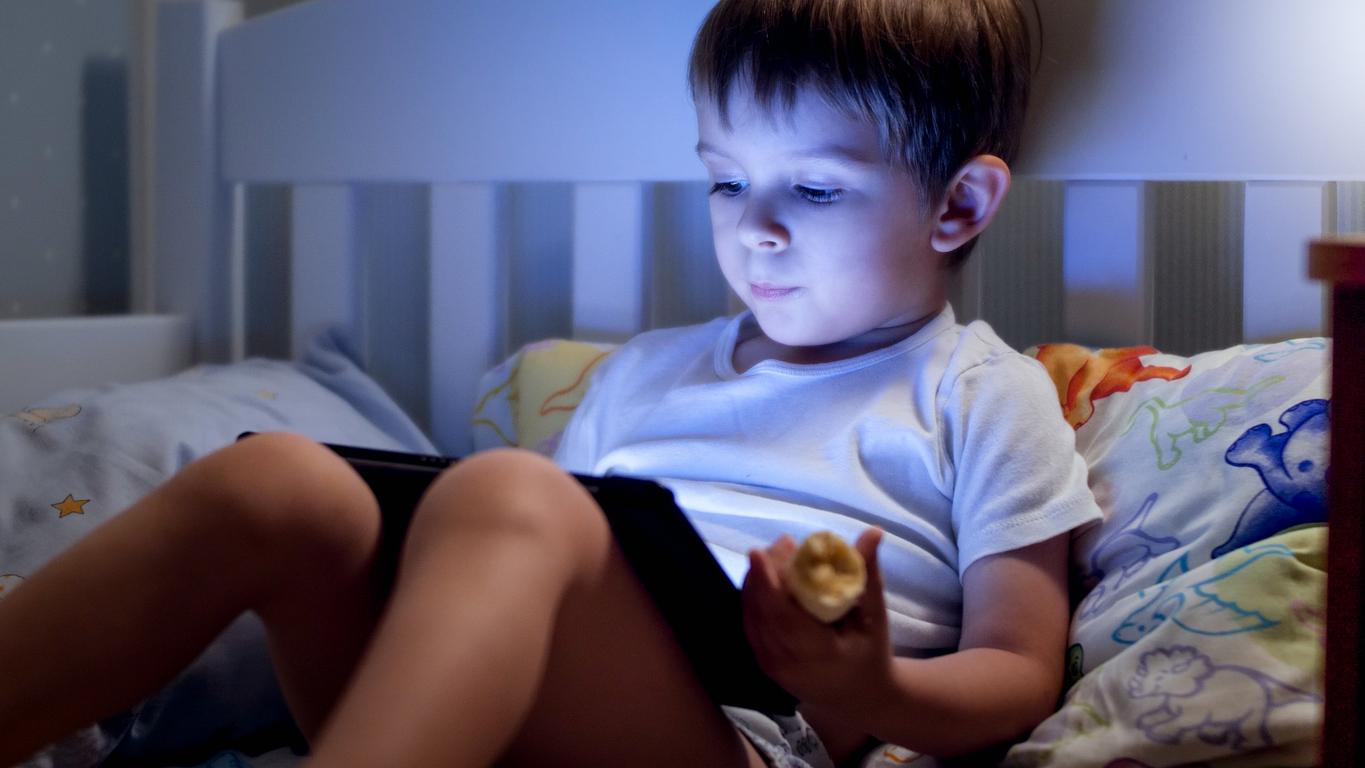More than seven in 10 French people admit that they cannot do without their smartphone and this attachment to the phone turns, for some, into dependence, according to a new study on screen addiction presented on January 23, 2023.

- 1 in 2 people who responded to the study say they spend at least 1.5 hours of their free time on screens every day.
- 71% of respondents admit that they could not do without their smartphone. Six out of ten say they often or always feel the irresistible need to connect more and more on social networks.
- 57% of individuals surveyed describe a relationship of dependence on their smartphone.
Telephone, diary, camera, means of payment, mailbox, GPS, game console, etc. THE Smartphone has become an essential tool in our daily lives. Moreover, 71% of the 21,422 people aged between 18 and 89 who participated in the study on screen addiction Observatoire santé Pro BTP, in partnership with the research center of the Rafaël Institute, admit to not being able to switch from their smartphone.
And if its “digital Swiss army knife” side can explain this feeling, research highlights several worrying behaviors for physical, mental and social health.
Addiction to screens: 40% believe they spend too much time time
One in two respondents spend more than 1h30 of his free time per day in front of screens. Certain behaviors, highlighted by the survey, may seem at first glance “fun”. For example, 36% of respondents often or always go to the toilet with their smartphone, 32% use it at the table, 43% go to bed with it or even 53% consult it as soon as they wake up. However, this strong presence of the device in daily life is not without consequences. Some of the individuals interviewed testify to addictive habits. More than 6 in 10 say they often or always feel the irresistible need to connect to social networks. 40% believe they spend too much time there. The rate rises to 57% among 18 to 39 year olds. Furthermore, 64% of people who responded to the study say that they regularly spend time on their phone without thinking when they have more important things to do.
In total, nearly six out of ten respondents (57%) report more than five practices (excessive usage time, lack, etc.) with their smartphone which have negative consequences on their lives. Which may suggest addictive behavior, according to the study authors. At the same time, 38% have more than eight, testifying here to addictive use of the device. “Respondents under 40 are most concerned: 77% of them have a score above 5 on the smartphone addiction assessment questionnaire. A significant proportion of respondents from other generations also display an intense relationship with the smartphone: 58% of 40-59 year olds still 38% of users aged 60 years and older get a score greater than 5″specifies the report.
“It is an excessive use of the smartphone which is affiliated with what we could call an addiction. It looks like a behavioral addiction. However, we do not yet have enough medical and scientific data to say it is an addiction.specified the Pr Laurent Karilaprofessor of psychiatry and addictology at Paris Saclay University during the presentation of the figures.
Moreover, a large proportion of adults interviewed are aware of having a problematic relationship with their phone. More than one in two owners (54%) would like to be less connected to their phone. But reducing your “consumption” is not easy. 39% of respondents say they have already tried to do so, but have not succeeded. This point echoes the “5 Cs” of addiction: Control (loss of control)Consumption (irrepressible desire to consume)Compulsion (compulsive activity)Continuous (continuous use)Consequences (continued use despite negative consequences).
57% of adults are uncomfortable without their smartphone
The arrival of the smartphone and its access to the Internet have given rise to new fears and sources of stress among its users, such as the fear of missing something or being excluded from a social event. FoMo (Fear of missing out) or even theathazagoraphobia (the fear of being forgotten by loved ones). They lead many people to constantly check their messages and notifications. 60% of respondents admit that they check their phone several times a day and 7% say that a whole day without a message, call or response to their online activity makes them feel abandoned and left out .
Furthermore, some users develop nomophobia, or the fear of being deprived of their phone. 57% of them say they are uncomfortable when they don’t have it with them or when there is no network. In addition, one in four users (26%) admits that he “doesn’t feel good” without his smartphone, even for a short time.
These repeated anxious behaviors are not without consequences on health, has recalled the endocrinologist Martine Duclos, Head of the Sports Medicine department at Clermont-Ferrand University Hospital and President of the National Observatory of Physical Activity and Sedentary lifestyle (ONAPS)during the presentation of the study. “Psychological stress causes the same hormonal responses as physical stress, so heart rate and blood pressure increase and energy stores are released. But the muscles do not use them, since they are at rest on an armchair. So the released fats and sugar will lodge in places where they shouldn’t be like the arteries or around the heart… When this psychological stress is daily and lasts for years, it can lead to cardiovascular and metabolic diseases. Stress is the bedrock of chronic diseases”explained the expert, recalling that excessive use of screens also promotes a sedentary lifestyle, lack of exercise and, through a domino effect, obesity.
Smartphone: factor of social isolation?
A recent survey IFOP/Flashes for the animal insurer Goodflair revealed that 18% of French people frequently experience a feeling of loneliness. Digital tools could well play a role in this feeling. A quarter of the people who responded to the study on screen addiction by the Pro BTP Health Observatory and the Rafaël Institute research center believe they spend more time sending messages or comments than talking to people. people in real time. 14% of individuals surveyed added that they engage in “phubbing” behavior. That is to say, they ignore people physically with them to check their phone (in a restaurant, in the street, in a meeting, at a dinner, etc.).
Furthermore, social networks are not necessarily synonymous with exchanges: 70% of respondents indicate that they connect to social networks just to watch what others are doing, without commenting on anything. The rate rises to 82% among those under 40. In addition, 10% of them admit that they then experience a feeling of sadness.
Screen addiction: beware of young people
Although the study focused on the adult population, experts point out that adolescents are particularly vulnerable to excessive smartphone use. According to them, it is necessary to teach young people to use new technologies properly through school and through parents. “Intra-family consumption habits maintain habits. Imitating elders is fundamental in the behavioral habits of young people and certain behaviors such as multitasking, a source of disorders of attention and concentration, can be harmful. What our study shows, is that what could resemble a recommendation becomes almost an imperative: in fact, approximately one child and one adolescent in four present problematic use of the smartphone and, in our study, 79% of the group aged 19-39 say they themselves spend too much time on their smartphone.explains the study.
“We are arriving at a profile among adolescents that we have never seen in our history. They combine a double profile of insufficient physical activity and enormous time spent sitting. Only 5% of adolescents respect both the recommendations of physical activities and time spent sitting. However, we know that both are major determinants of health, particularly motor, intellectual and social abilities. This impacts their health during adolescence, but it will have an even greater impact on their health as an adult and senioralerts Professor Martine Duclos.

















